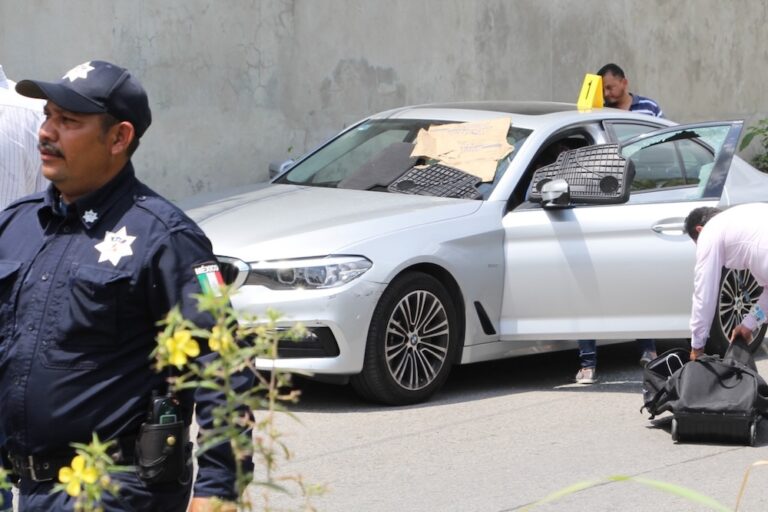(CEPET/IFEX) – On 2 April 2009, the National Human Rights Commission (Comisión Nacional de Derechos Humanos, CNDH) issued a request to Federal Public Security Secretary Genaro García Luna asking him to provide protection to journalist Anabel Hernández, of the magazine “Reporte Índigo”. The CNDH requested the protective measures for both Hernández and her family since […]
(CEPET/IFEX) – On 2 April 2009, the National Human Rights Commission (Comisión Nacional de Derechos Humanos, CNDH) issued a request to Federal Public Security Secretary Genaro García Luna asking him to provide protection to journalist Anabel Hernández, of the magazine “Reporte Índigo”. The CNDH requested the protective measures for both Hernández and her family since the journalist believes that her freedom of expression rights are being jeopardised and she has expressed fear for her safety.
In a public statement, the CNDH noted that it considers the journalist’s concerns to be well-founded and said that Hernández lodged a complaint against García Luna saying that the security secretary had told several media outlets he intended to initiate legal action against her for an investigation she conducted into his affairs. García Luna has alleged that Hernández’s journalistic investigation is part of a campaign against him orchestrated by organised crime groups.
On 27 March, Hernández reported in “Reporte Índigo” that García Luna was constructing a house in an exclusive area of Mexico City, with a value exceeding 20 million pesos (approx. US$1.4 million). On the same day, cameramen from the TVC cable television station went to the property in question to film it and follow up on the “Reporte Índigo” information. When they began filming the house, however, they were detained. They were subsequently held incommunicado and interrogated for 15 hours, despite the fact that they clearly identified themselves as journalists.
On 31 March, García Luna said on a news radio programme that he was initiating legal action against “Reporte Índigo” for having reported on the supposed construction of his house. He said that the report written by Hernández put his family at risk and that it was part of a campaign to discredit him. “They are trying to intimidate me, to get me to withdraw, but that is not going to happen. On the contrary, I am not going to back off in my fight against crime,” García Luna said.
According to the CNDH, Hernández felt that García Luna’s statements put her life and the lives of her family members at risk, especially taking into account the fact that she is pregnant – all as a consequence of the journalist having exercised her right to freedom of expression. As such, the CNDH requested that she be provided with protection and gave García Luna three days to respond to the request.
In a separate but related incident, the “La Crónica” newspaper revealed on 2 April that Roberto Vidal Méndez, a professor and specialist in security issues, was detained as he left a radio station belonging to the Radio Centro group after having spoken about the construction of the Luna García residence.
“La Crónica” said that Vidal Méndez, a law professor at the National Autonomous University of Mexico (Universidad Nacional Autónoma de México, UNAM), was being held incommunicado and that several lawyers had filed a request for his release. The newspaper also said that a CNDH employee had attempted to speak to Vidal Méndez, but had not succeeded in doing so as of 9:50 p.m. (local time) on 2 April. “The allegations against Roberto Vidal relate to drug and arms trafficking, as well as money laundering,” “La Crónica” said.
In a radio interview, Hernández said that Vidal Méndez was detained illegally, without an arrest warrant. “He is a neighbour of Garcia Luna’s and a friend of mine, and he is innocent,” the journalist said. She added that for a week she has avoided going out in the street because she fears that she will be arrested.
For further information on the detention of the TVC Noticias cameramen, see: http://ifex.org/en/content/view/full/102077


